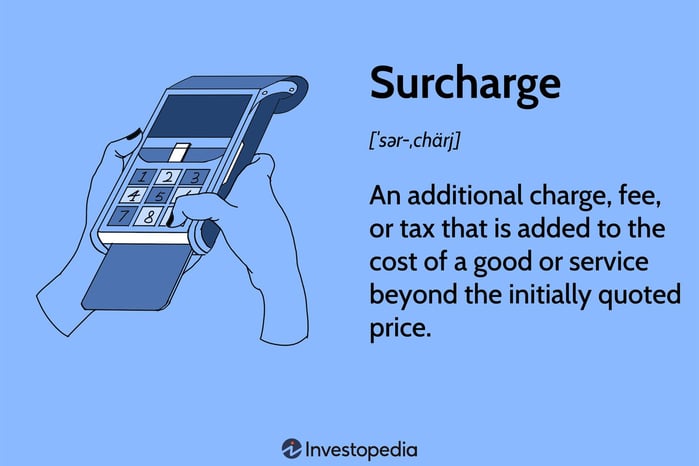Understanding Credit Card Surcharging: A Strategic Tool for Business Owners
As businesses continuously seek ways to manage operational costs effectively, credit card surcharging emerges as a strategic option to consider. Surcharging allows merchants to pass on the cost of credit card transactions to customers, potentially alleviating the burden of processing fees. Here’s a deeper look at what credit card surcharging entails and how it could benefit your business.
Greg Turner | Merchant Services & POS Solutions Expert
5/13/20242 min read
What is Credit Card Surcharging?
A credit card surcharge is an additional fee that merchants can apply to transactions when customers choose to pay with a credit card. This fee is calculated as a percentage of the transaction amount, reflecting the cost that the merchant incurs for processing the credit card payment. The practice is regulated and requires adherence to specific guidelines set by credit card companies and compliance with state laws.


Legal and Compliance Considerations
Before implementing a surcharge, it's crucial to verify that it's permitted under local laws. While surcharging is legal in most U.S. states, there are exceptions and ongoing legal debates that must be considered. Compliance also involves notifying your credit card processor and the card networks, adhering to cap limits set by card issuers, and ensuring transparency in surcharge disclosures to customers.
Surcharge vs. Convenience Fee vs. Cash Discount
It's important to differentiate between a surcharge and other similar fees like convenience fees, which are flat rates for the option to use a credit card in specific scenarios, or cash discounts, which offer savings for not using a credit card. Each has distinct legal and operational implications and choosing the right approach depends on your business model and customer base.
Impact on Business and Customer Behavior
While surcharging can offset the costs of credit card processing, adding up to 3% in profitability per business transaction, it might also affect consumer behavior. Customers may be discouraged by higher costs on credit card payments, which could influence their purchasing decisions. It’s vital for businesses to weigh the benefits of reduced processing fees against the potential impact on customer satisfaction and sales.
Best Practices for Implementation
If you decide to implement surcharging, transparency is key. Clearly inform your customers about the surcharge through visible signage at your store and early in the online payment process. This helps maintain trust and avoids surprises at the point of sale. Additionally, ensure your payment systems are set up to separately itemize the surcharge on receipts and during the transaction process.
Prosperity Payments: Your Partner in Efficient Payment Processing
At Prosperity Payments, we understand the complexities and challenges of managing payment processing costs. If you’re considering surcharging as a strategy to alleviate these costs, we’re here to help. Our team can guide you through the legal considerations, help you set up compliant surcharging practices, and ensure you maintain a positive relationship with your customers.
For more information on how credit card surcharging can benefit your business, or to explore other payment solutions that can enhance your operational efficiency, contact Prosperity Payments today. Our expertise is your advantage in navigating the evolving landscape of payment processing.


Contact us
Whether you have a request, a query, or want to work with us, use the form below to get in touch with our team.
Get in touch
Contact us:
248-930-8096
info@prosperitypayments.co
M-F-9-5
© 2002. All rights reserved.
